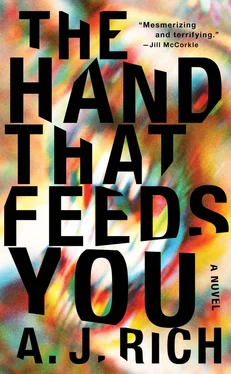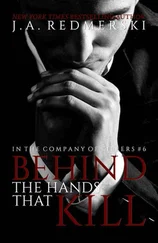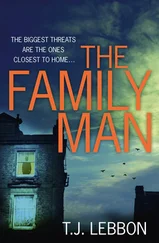Cilla may have thought nothing was to be gained by finding out who Bennett really was, but Cilla had not been in love with him, nor had she made up the blind study of predators and controls, the study that had brought him to me in the first place.
• • •
That night, I read pages of Dangerous Liaisons at random, looking for clues as to who Bennett might have been, or who he aspired to be, if he had indeed underlined these passages. The more I read of the Marquise, the more unsettled I felt and the more familiar she seemed. Bennett had told me about a woman he had known — he had put air quotes around the word known —in his late twenties. At a casino in Montreal, celebrating the sale of two paintings he had “inherited”—the quotes here are mine — he’d been approached by a beautiful woman who said, “You’ve got to see this.”
He said she led him to where a gray-haired woman was feeding tokens into a $5 slot machine, roped off from the rest of the slots. The woman’s opera-length, white gloves were filthy from handling coins. The beautiful woman showed him where, a short distance away, an old man with a bullhorn repeatedly asked his wife to step away from the machine. The casino had phoned him when his wife was down $30,000.
Bennett told me he thought the beautiful woman meant this as a cautionary tale, but she said in his ear, “It’s a game. They get all this attention. They get comped a room.” Bennett told me he made the obvious point, that they didn’t get the $30,000 back, and the beautiful woman told him the old man had millions. He asks his wife to put on the filthy opera gloves and elicit pity to the point where he has to be called in to save her from herself. A man enjoys the happiness he feels, and a woman the happiness she gives.
Bennett asked how the beautiful woman knew, and she told him she had seen them the month before at another casino. The casinos don’t mind, they still get their money, she told him.
This was the woman, Bennett told me, who defined the next three years of his life.
• • •
Hours later, I still hadn’t slept. I slipped on my robe and took the stairs to the roof. My building was only six stories high, but taller than my neighbors’ clapboard houses with their tar roofs and crooked chimneys and satellite dishes. My roof had a clear if disrupted view of Manhattan. When I first moved here a year ago, I could see the Williamsburg Bridge, but the nonstop construction along Williamsburg’s waterfront had slowly closed that view corridor. I had taken Bennett up here to watch the Fourth of July fireworks, his first time spending a weekend at my place. Steven and I normally watched the fireworks together — we had since we were kids — but I had lied to him, said I was going out of town. Bennett had said he wasn’t ready to meet my big brother and he didn’t want to dilute our time together.
Every other year, the city switches rivers for the show. This year’s extravaganza was over the Hudson. Bennett had said it looked as if New Jersey were attacking New York. Who was he?
Ghostly clouds raced across the sky; I feared I would never feel normal again. Bennett had hummed the Drifters’ classic “Up on the Roof” as we slow-danced. He had said one of his emo bands was going to do a new rendition. And I believed him.
Someone had left a broken lawn chair near the roof’s parapet and I sat down. The only time I had ever seen stars over the city was after the lights went out during Hurricane Sandy. Tonight, most of the downtown office buildings were dark, but not the new World Trade Center. It was lit up, and a crescent moon — the symbol of Islam — was positioned such that it seemed to touch the tower.
I did it. I got through the first night. Sleep wasn’t a big part of it, but I got through it. The kitchen cabinet I opened to get a coffee filter also housed Bennett’s granola. I would get coffee on the way to class. I’d lost a size so I put on my thin jeans and a cotton turtleneck. My concession to makeup was a swipe of concealer under each eye.
Going on Lovefraud.com, after what I’d read the night before, spotlighted the eloquence of the Marquise versus the cheeseball American duped. In reply to the letter I had read days before, I wrote:
I read about your terrible experience with great empathy and an escalating sense of familiarity. I, too, was involved with a man who asked me those identical questions, who pretended to be an agent, who never invited me to his place but instead met up with me at B&Bs in Maine. Lastly, he gave me a key to his apartment and, as in your experience, there was no such address. You can see why it is urgent that I speak with you. You can contact me at yesorno@hotmail.com.
This was the secure e-mail address I used for participants in my study.
• • •
Returning to class was not easy. I had planned to enter the lecture after the professor began and exit a few minutes early. One of my final courses after two years of graduate school was Psychology and the Law. It sounded like an entry-level course, but was, in fact, an overview of the latest intersections of mental-health and legal issues. I had already missed a quarter of the lectures. The last one I attended was the morning of the day I found Bennett dead. I dreaded the turning of my classmates’ heads, and the way I would be seen: a victimologist turned victim.
John Jay’s student body ranged from the beat cop getting extra credit that would speed a promotion, to a former prison guard whose goal was to become a warden, to a psychiatrist who wanted to perform psychological autopsies. The city campus was spread out over five square blocks in the West Fifties, near Roosevelt Hospital. The building always photographed, built in 1903 of marble and red brick, the one you might find on an Ivy League campus, housed the administration. All my classes were held in a generic modern annex. I slid my photo ID card through the electronic reader and headed up the stairwell to my class. The professor was consulting with one of the students about how to operate the PowerPoint system. The lights were still on, affording everyone a good look at me. I avoided eye contact as I shrugged off my backpack and took a blessedly empty seat next to my Dominican cop friend, Amabile, who was aptly named. When he and I were briefly dating, he said it meant “kindness.” He reached out and put his hand over my hand and held it there for a moment. I noticed he was wearing a GO BLOODHOUNDS T-shirt — supporting the John Jay basketball team. I must have been the topic of so much talk. It was not hard to imagine that a paper on my case would someday be included in the literature of criminology.
I went into this field of study to answer one question: not the one everyone asks — Why do certain people cross the line? — but why everyone doesn’t cross the line. I wanted to know what held me back and by how much. My interest was more than scholarly; it was personal.
Steven and I were Midwesterners with all the attendant stereotypes: our father was conservative, self-reliant, honest, and stubborn — that is, when he wasn’t cycling mania. Then he was charismatic, adventurous, and seductive. During one of those phases our mother had married him. She, on the other hand, had migrated to Illinois from California, the daughter of Okies who had fled the Dust Bowl during the Depression, failed to get a toehold in California’s Central Valley, and wound up working in the Chicago stockyards, living on the South Side with the newly arrived Southern blacks. Our mother was malleable, independent, reckless, vain, and a looker. She had no intention of remaining on the South Side. She was seven months pregnant with Steven when she witnessed her husband’s first ascent into full-blown mania. It began with his defying the obstetrician’s caution about late-term intercourse. When she refused him, he slept with my mother’s sixteen-year-old niece. Women have retaliated against their husbands for less. Why didn’t our mother step over the line?
Читать дальше

![Корнелл Вулрич - Eyes That Watch You [= The Case of the Talking Eyes]](/books/32103/kornell-vulrich-eyes-that-watch-you-the-case-of-thumb.webp)









